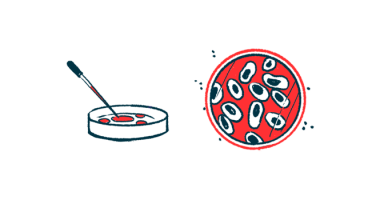Social Distancing, Sanitizing, Seeking Help, and Serenity

Sellers tore up the contract for our bid on a new home in Illinois. They wanted to accept a “better offer.” My wife and I are now homeless. Well, almost. We have a committed sale of the home we are in and we had started thinking of the Illinois place as “home,” but that home was gone.
Some unexpected things hit hard no matter how well prepared we might be for the COVID-19 lockdown. The threat of being homeless is more than shocking. It can be a devastating blow to the psyche. This threat is made even more ominous alongside the compounding dangers of contracting a terminal illness and being without financial means. These are scary times for everyone. But it is our job, each one of us, to maintain sanity in the middle of this COVID-19 chaos. In addition to practicing social distancing, sanitizing, and seeking help, let’s add serenity — I call this the 4S COVID-19 safety program.
When we found out we could not buy that Illinois house, it was like being slapped in the face: abrupt shock, nauseating confusion, and an absence of connectedness. Home is a sanctuary carved out to fit identity and purpose. Home cradles a lifetime of memories. Being without a home is to live in a state of groundlessness, a void lacking in both tangible and emotional connections. This groundlessness creates an absence of concrete information. It is a very difficult state of consciousness, one in which our minds seek relief from in any way possible.
The problem with the groundless state of consciousness is that, by its very nature, it is difficult to elucidate. It is not the numb state nor the quiet mind. It is a state of consciousness where one sits with the discomfort of not knowing and tries to calmly wait. If you frantically grasp for information within groundlessness then the consciousness state shifts. In its place a flood of ill-informed emotions cascades. It is easy to attribute the discomfort of groundlessness to “he said,” “she did,” “they’re not doing enough.” We quickly blame the discomfort on something or someone external. We frenetically run around doing things we hope will make this hypothetical external cause go away. Because we are blaming, and not serenely sitting, our thoughts, feelings, and actions can make the situation worse — personally and for those around us.
One of the common responses to the state of groundlessness is that people seek proof of future security. They want to “be sure” that nothing bad is going to happen to them in the future. This assuredness places the hope that the discomfort of groundlessness will dissipate. The sellers of the Illinois home we liked wanted proof, a guarantee, that we would buy their home regardless of our financial dependency on our current home’s buyers. My son sought to sell his home and the buyers came back with an offer that included a termination clause if the COVID-19 virus worsened. These are illustrations of people trying to find a firmer footing within a terrain that is mostly groundless.
Immediately, or over time, we have each realized that having a chronic disease like Parkinson’s means that we are never going to have absolute proof of future security. In the cases of both COVID-19 and chronic illness, we come to the realization that life is forever changed. We can choose to live a life of possibility, not only for personal well-being but also for the well-being of others. In the face of groundlessness, we need to continue to make accommodations to a “new normal,” communicate, and share compassion with our fellow humans.
We are all in this together and we can help each other by learning to sit serenely within a state of groundlessness as opposed to overreacting with a desperation to make the discomfort go away. Realistically, there is no proof that our future security will be guaranteed against the COVID-19 chaos or any other life situation. Chasing after such elusive proof often means we disregard people and actions that might help promote our well-being. Grasping for proof of future security just adds to stress, lowering our resistance to disease. It also adds to the stress of others around us. COVID-19 is highly contagious and we all need to cooperate to eliminate the threat. Let us all put into play the 4S COVID-19 safety program. Pass on this information to others and them in implementing their own 4S COVID-19 safety program.
***
Note: Parkinson’s News Today is strictly a news and information website about the disease. It does not provide medical advice, diagnosis or treatment. This content is not intended to be a substitute for professional medical advice, diagnosis, or treatment. Always seek the advice of your physician or another qualified health provider with any questions you may have regarding a medical condition. Never disregard professional medical advice or delay in seeking it because of something you have read on this website. The opinions expressed in this column are not those of Parkinson’s News Today or its parent company, Bionews Services, and are intended to spark discussion about issues pertaining to Parkinson’s disease.







Comments
Phil Gattis
So sorry to hear about this twist in your situation, Dr C. You will be in our thoughts and prayers.
From a brother Vietnam-era veteran
Dr. C
Hi Phil ~ The prayers from you and other compassionate people in the Parkinson's community have helped me get through the rough spots. As a fellow vet I hope you are able to find support through the VA system. They have really stepped up in my case and I am grateful for their assistance.
Compassionate blessings to you,
Dr. C.